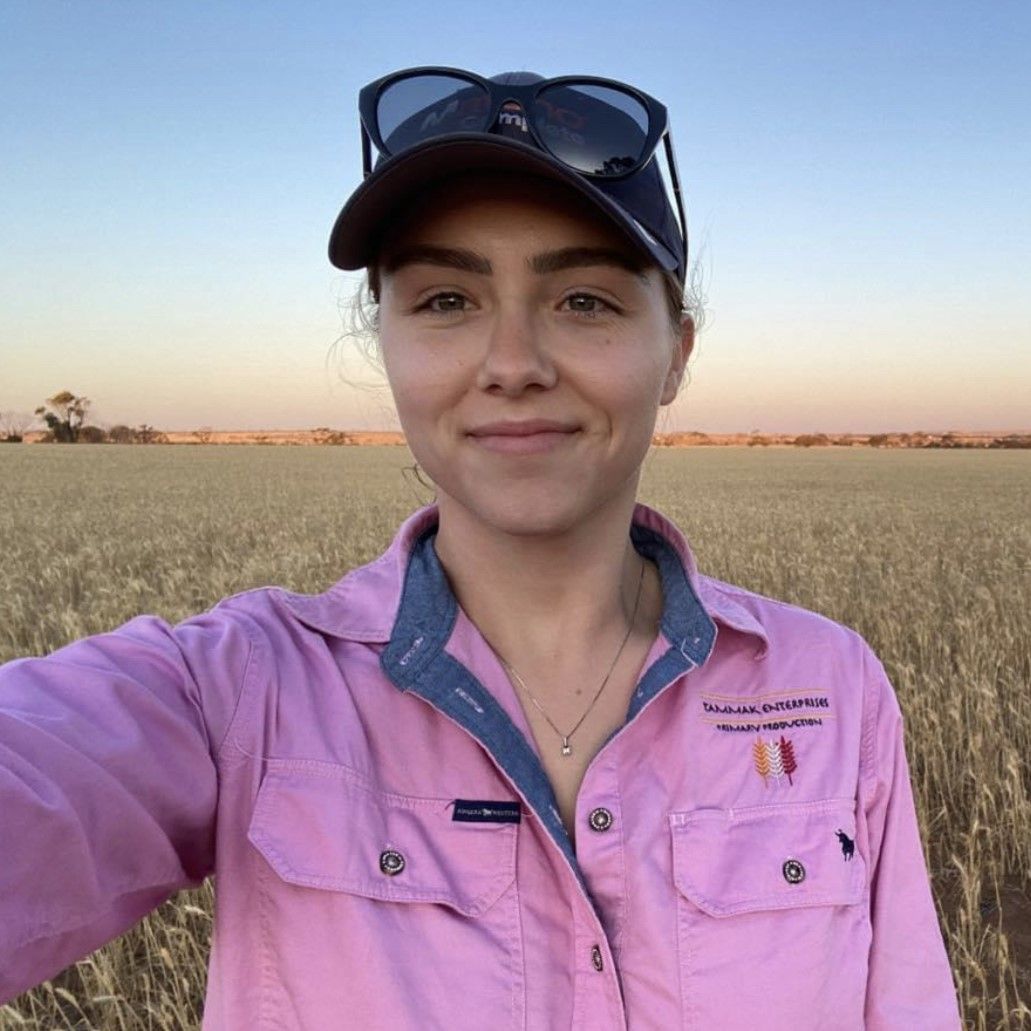As combine harvesters begin their roll across the Western Australian wheatbelt, Australian growers begin their early mornings to the sounds of birdsong. It's a melody Asha McFarlane from Doodlakine in the central wheatbelt, has known since childhood. Now, soon to be armed with an ag degree, she's returning to the family farm to help with harvest once more, and maybe this time, stay for good.
“I was born into a farming family. My dad’s dad was a farmer, so dad was born into it and then I was too. I’ve been on and off the farm since high school, I went out and did other things, working in hospitality and retail. But right now I have a position with a seed company outside of the farm, and I go back and help with harvest and that sort of thing.”
This family legacy is one that Asha wants to continue for herself and it significantly influenced her decision to study agriculture at university. She notes that farming has influenced her from birth and is inextricably linked to her life and sense of self.
“Anything I do benefits my family and my livelihood. If you need to work that extra five hours at night because there’s rain coming, you do it. You do what you must to get things done. It’s hard to explain what it feels like until you’ve done it, it’s so satisfying; finishing and achieving something.”
Asha knows all too well the importance of farming, having lived in the city of Perth for the duration of her degree. Juxtaposing the two lifestyles side by side, she feels that the COVID pandemic really brought out the best examples of just how important farming is to the country.
“Farming is the foundation of how the country works. I spend a lot of time in the city at the moment and marvel at how easily accessible everything is in terms of our food. None of that would be possible without farming. If you took out even a quarter of farming in Australia that would be a massive hit to the food supply chain. It’s the same as the toilet paper situation during – it disappeared and people struggled to understand why. I imagine when I think of all the different parts of Australia as a big engine working together, farming is the big cog in the middle. As soon as something moves out of place it stops things moving.”
As Asha gets back on her family’s mixed operation farm for harvest, she notes that she’s hopeful about the future. Not only that, she’s full of ideas of how to keep people interested, to educate and encourage those who haven’t had much access to farming to get on the land and understand exactly what farming’s all about.
“Farming is essentially a trade, without actually being one. I’d love to see it turned into an apprenticeship where you get on farm for two years and make it a full trade where you get the same recognition as if you were a sparky or mechanic or something. It’s more than driving a tractor. It’s understanding the lifestyle and even if you only spent a week getting that experience, you’d understand a lot more about it than you did before.”
